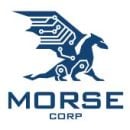There are roughly 19 million military veterans in the United States, according to data from the Department of Veterans Affairs. And every year, approximately 200,000 more men and women return to civilian life after their enlistment in a military branch comes to an end.
A majority of service members spend years, if not decades, immersed in a tightly structured environment built on a foundation of continuous development and training while in uniform. But when their military journeys come to a close, where do the veterans go?
“Many folks in the tech sector are more than willing to work with someone who has less technical acumen but the desire to learn and grow,” said Michael Coughlin, strategy and insights product owner at MassMutual.
For over a decade, Coughlin served in the Rhode Island Army National Guard as a field artillery officer and deployed to Kuwait to support training and logistics against ISIS. Today at MassMutual, he is translating his military experience into his new role as a product owner for strategy and insights in the newly created customer and advisor experience organization.
“Your work ethic and professional qualities that made you a value-add during your military service — like self-discipline, critical thinking, comfort in ambiguity, sound judgment and ability to collaborate with others — will also make you a value-add to a civilian employer in the tech sector,” Coughlin added.
Like Coughlin, Program Manager Sam Harrison started a new professional chapter at MORSE by transfiguring his previous field artillery experience into an invaluable benefit. His secret? Taking advantage of veteran support programs and networks — like the DoD Skills Bridge program — during his transition time to research best fits and explore potential futures.
“Your transition will not be linear, and it’ll be uniquely yours,” Harrison said. “The change is daunting at first because it requires a leap of faith into the unknown, but your military experiences will provide any organization with an incredible asset.”
In honor of Veteran’s Day, Built In Boston sat down with Coughlin, Harrison and seasoned veterans at four other tech companies to learn how they embraced the skills they forged in the military and launched successful new careers in the tech industry.
Harrison summarized it best: “Find your passion and do great things.”
MassMutual is a mutual life insurance company that provides investment management and trust services.
Tell us more about how you served your country, and your current role at MassMutual.
For the past 12 years, I’ve served in the Rhode Island Army National Guard as a field artillery officer. Throughout my career I held a variety of roles in a field artillery cannon battalion — fire direction, platoon leadership, battery leadership, battalion human resources and battalion operations — and an adjacent brigade headquarters, where I was a fires subject matter expert and advisor. During my time, I deployed to Kuwait where I supported training and logistics for Partner Forces participating in the fight against ISIS.
At MassMutual, I’m a product owner for strategy and insights in the newly created customer and advisor experience organization. As a product owner, I manage the metrics, reporting and insights related to digital customer satisfaction across a suite of digital applications. Within our newly created organization, we are currently working on better understanding our user base through defining user personas and mapping user journeys while ensuring that we have the analytics in place to capture and leverage data.
What aspects of your military service have helped you build a career in tech, and what are some new skills you’ve developed since you left the service?
Field artillery often involves math skills, technical problem-solving, attention to detail and troubleshooting of myriad computer systems. We interface with several platforms to deliver the right effect at the correct time and place. These skills make us adept at taking complex problems, breaking them down into simpler, manageable chunks and solving them. When pursuing a career in tech, mindfulness and the ability to demystify complex problems are hugely helpful for overcoming challenges.
During my service, I learned from leaders who fostered a culture of data-driven decision making. For instance, a big part of my planner role overseas involved forecasting logistical and supply needs for partner forces — ammunition and equipment — that we imported from multiple nations with varying transit times. I collaborated with teammates to develop different projections and models in Excel that helped us keep material flowing.
Outside of the service, I’ve been focused on learning an array of specific computer programming languages both for process automation and analytical tools, and gaining business acumen.
Build your network — you’ll create connections willing to take a chance on you even without a traditional tech resume.”
What advice would you give to fellow veterans who are looking to build a career in the tech sector?
Don’t be intimidated by the tech sector if your military occupation did not involve building software or working in the information technology or communications disciplines. If you have an inquisitive mindset and approach, there are many ways to gain skills through formal education or informal training, self-paced or otherwise, to help bridge the skills gap.
Many folks in the tech sector are more than willing to work with someone who has less technical acumen but the desire to learn and grow. Your work ethic and professional qualities that made you a value-add during your military service — like self-discipline, critical thinking, comfort in ambiguity, sound judgment and ability to collaborate with others — will also make you a value-add to a civilian employer in the tech sector. Build your network, too. You’ll create connections willing to take a chance on you even without a traditional tech resume.
Quickbase
Quickbase helps businesses improve their operations with real-time insights and automation. Built In Boston interviewed Quickbase’s Vetbase employee resource group co-chairs Christine Rosa and Gareth Hughes.
Tell us more about how you served your country, and your current role at Quickbase.
Christine Rosa, customer success manager: I served in the Army service as a reservist and in active duty for 10 years. I was an administrative specialist reclassed to public affairs. I have been stationed between Miami, Germany and Alaska, and served Operation Iraqi Freedom in Kuwait and Iraq. My position at Quickbase is a customer success manager on the enablement services team, focusing on helping our customers drive success through Quickbase enablement services packages.
Gareth Hughes, senior enterprise account executive: I served in the Marine Corps in active and reserve duty for 19 and a half years. I have been a CH-53 helicopter pilot, forward air controller (FAC) and a field historian. I’ve served in Virginia, Florida, North Carolina, Hawaii, California, Alabama, Iraq, Afghanistan, Morocco, Scotland, New Zealand and Brazil. My position at Quickbase is a senior customer account executive on the enterprise sales team, helping customers identify their challenges and solve them with Quickbase.
What aspects of your military service have helped you build a career in tech, and what are some new skills you’ve developed since you left the service?
Rosa: The aspects of my service that helped me build my career in tech are attention to detail and the ability to work in a fast-paced environment. I’ve learned to ask a lot of follow-up questions, whereas in the military you do what is asked of you. Since I left the service, I had to develop the muscle to ask as many questions as necessary to get the job done well and right the first time.
Hughes: The roles of helicopter pilot and forward air controller or joint terminal attack controller are highly technical, which helped me both manage stress and risk while being a continuous learner and high performer. Public speaking as a military officer is critical, especially with folks who outrank you. In the Marine Corps, we endorse teaching, presenting and receiving feedback at the lowest stage of your career. It helps you feel confident that you are an expert at something, which translates into speaking with clients in a customer-facing role.
Adaptability, flexibility, being a team player and the ability to execute with limited information have helped me be a successful employee. We are told to “bloom where you’re planted” in the military and accepting that as a civilian helps you grow.
I’ve learned to ask a lot of follow-up questions, whereas in the military you do what is asked of you.”
What advice would you give to fellow veterans who are looking to build a career in the tech sector?
Rosa: Go for it! Figure out your transferable skills and translate. Apply for a role that aligns with your experience, do the research, and build your way up.
Hughes: Learn to translate your military successes into business successes. Include data points. Find something you did in the military that tells the story of how you did that in the past and can repeat it with a company, or how you possess the ability to do one of those three things in order to make the employer understand your value.
Finally, you are not giving your life in service to an employer in the same way you did for the country. Seek out what business benefit the employer is offering you like employer brand, skill or pay and then determine which of those three is most important to you before you make your selection.
Large companies provide a strong brand that will help retain your long-term credentials, but don’t always allow entry-level veterans the ability to have a large impact on the business. Small companies may offer a high impact, high risk and potentially high reward. I have chosen to work at Quickbase: a mid-sized company with great benefits, high accountability and the ability to make an impact.
Anduril is a defense technology company that builds tools to help those serving on the front lines.
Tell us more about how you served your country, and your current role at Anduril.
I served in the Navy as a mineman from 2013 to 2020 and was forward deployed on USS Chief stationed out of Sasebo, Japan, and Naval Weapons Station Seal Beach in California. When I was on the ship, I was primarily a sonar technician working on the AN/SQQ-32 Variable Depth Sonar (VDS) which is actually what initially drew me into Anduril after their recent acquisition of Dive Technologies. It’s a bit of a career pivot, but I’m working within the IT department as a level two technician, helping out employees with any IT based issues or needs that arise.
What aspects of your military service have helped you build a career in tech, and what are some new skills you’ve developed since you left the service?
My shipboard career in the Navy was a picture perfect example of “jack of all trades.” My job field had various exposure to both small arms weapons, combat information center equipment like sonar, UUV and navigation systems, and deckhand experience with rigging deck gear. My career in the Navy also allowed me the opportunity to hone in and focus more on the tech side. After leaving the service, it granted me the ability to transition to tech by working at an IT-managed service provider for small and medium-sized businesses.
Since leaving the Navy, everything that I’ve learned within my new career has been self-taught both by exposure to various systems and gaining experience working on them. The Navy provided the groundwork and mentality for me wanting to succeed in whatever position I end up in.
The Navy provided the groundwork and mentality for me wanting to succeed in whatever position I end up in.”
What advice would you give to fellow veterans who are looking to build a career in the tech sector?
Make the jump! If you’re just starting out, put your best foot forward and never stop learning how to become the subject matter expert in your field.
MORSE provides customer-focused algorithm and software development services to deploy solutions for the U.S. national security ecosystem.
Tell us more about how you served your country, and your current role at MORSE.
I graduated from West Point in 2010 and had the privilege to serve as a field artillery officer until 2015. I deployed to Afghanistan with the 1st Infantry Division in 2012 as a maneuver platoon leader and after was stationed at Ft. Bragg with the 18th Fires Brigade supporting the 82nd Airborne.
I’m currently a program manager with MORSE and I lead specially selected teams of data scientists, software developers and human-machine teaming system engineers to provide independent and objective testing and evaluation (T&E) for artificial intelligence and machine learning (AI/ML) programs for the Department of Defense (DoD).
Our program turns the enormous volume of data available to the DoD into actionable insights at speed. Our team is at the intersection of AI research and practical solutions. We’re pushing technical boundaries with user-centric design and shaping technology innovation for the Warfighter. We pride ourselves on being a change catalyst in the DoD and we partner with highly respected industry pathfinders each day to add value to the Warfighter with focused and intentional human-machine teaming augmentation.
What aspects of your military service have helped you build a career in tech, and what are some new skills you’ve developed since you left the service?
I’ve been fortunate to be part of highly innovative and capable teams since leaving the military. I’m grateful that I can learn from my colleagues every day. At MORSE, we surround ourselves with exceptional individuals who have a wealth of technical depth and breadth. We provide the government unique perspectives and practical solutions and it’s a place where I can consistently feed my curiosity and inspire myself and our teams to deliver excellence to our customers.
Specifically, I feel I’ve grown most in these areas: proposal writing and contract vehicles, software development life cycle and agile ceremonies, rituals and artifacts, customer communication and expectation, tradeoff management, time management and career progression, lean operations and so many more.
Your military experiences will provide any organization with an incredible asset — find your passion and do great things.”
What advice would you give to fellow veterans who are looking to build a career in the tech sector?
There are many veteran support programs and networks to explore and leverage, so use your transition time to research and participate in those. The single best way to gain industry experience is through the DoD Skills Bridge program. MORSE has had excellent support and success connecting with prospective employees through this vehicle and it’s a great opportunity to gain relevant exposure to industry culture, standards, trends, language, and career progression.
WHOOP is a wearable health and fitness tracker and performance platform.
Tell us more about how you served your country, and your current role at WHOOP.
I served for a total of eight years from 2008 to 2016 — five on active duty, followed by three in the Missouri National Guard. During my active duty service, I was an infantryman and primarily served out of Ft. Bliss, located in El Paso, Texas. Near the end of my active service, I did a tour in Afghanistan with that unit before transitioning out due to some injuries.
Currently, I am a staff technical lead with a focus on Android development for the main-UX team. I work on identifying and developing various higher level architecture needs of the mobile apps to enable the success of other feature teams here at WHOOP.
What aspects of your military service have helped you build a career in tech, and what are some new skills you’ve developed since you left the service?
The skills that have stuck with me over the years since my transition have been primarily the soft skills I developed. These range from team management skills and handling high pressure situations to the discipline and tact I developed to see my goals through.
Use the skills and unique life experiences that you have to push forward and help compliment your technical skills as they grow.”
What advice would you give to fellow veterans who are looking to build a career in the tech sector?
Don’t be discouraged by your current military occupational specialty (MOS) or education level. You’ll be surrounded by college kids that are younger than you are, who may seem smarter and like they have a jump start on things — that can be disheartening. Use the skills and unique life experiences that you have to push forward and help compliment your technical skills as they grow.
Acquia provides a cloud-based, digital management platform for sites built on the Drupal platform.
Tell us more about how you served your country, and your current role at Acquia.
I joined the U.S. Army shortly after high school and served a total of 20 years as an infantryman in various U.S. and overseas locations. Currently my role is the senior global resiliency manager for Acquia, and I am responsible for “all things resilience”: business continuity, disaster recovery and crisis management, as well as physical security. Right now, my focus is on preparing virtual scenarios for table top exercises (TTXs) that we use to validate our continuity and disaster recovery plans.
What aspects of your military service have helped you build a career in tech, and what are some new skills you’ve developed since you left the service?
In the military, you quickly understand that the proficiency at your specific job is paramount to the team and its overall success, and the same is true in the tech industry. Whereas it is possible that a single soldier failing to do their job correctly could jeopardize an entire unit, the same concept could be applied to technology groups responsible for operating a complex network infrastructure or managing an important database of information. Understanding how a specific individual impacts the overall operation is paramount to success in both the military and a technology organization.
My time in the military has helped me see the similarities between the military and tech industry. I would say specifically the importance around individual proficiency, managing stress, security, planning complex operations, teamwork, compliance, continuity and resiliency. Many organizations rely on their technology and the employees who manage and maintain it to keep operations in financial centers, medical facilities and even government entities functioning at all times.
Understanding how a specific individual impacts the overall operation is paramount to success in both the military and a technology organization.”
What advice would you give to fellow veterans who are looking to build a career in the tech sector?
I would first advise any member of the military looking to join the tech sector to try and educate yourself on the varying areas within the technology sector. There are multiple ways to learn about the different areas between online courses to simple internet searches.
Also, try to connect to other veterans who are currently working in some aspect of technology, pick their brain and listen to their experiences to help you decide on a specific tech area that you might be interested in. Many veterans may not understand how aligned they might be right out of the military to step into a compliance, security or resiliency role until they have had a conversation with someone already familiar with the position.















